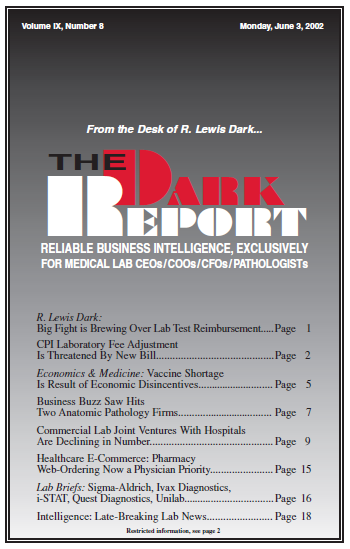SIGMA-ALDRICH SELLS ITS EIA PRODUCT LINE TO IVAX DIAGNOSTICS FOLLOWING ITS DECISION TO EXIT the clinical diagnostics market, Sigma-Aldrich, Inc. has sold its global enzyme immunoassay (EIA) product line to Ivax Diagnostics, Inc., based in Miami, Florida. The sale occurred on May 15. Sigma-Aldrich, through its Sigma Diagnostics division, was selling EIA instruments and reagents …
Sigma-Aldrich, Ivax Diagnostics, i-STAT, Quest Diagnostics, Unilab Read More »
To access this post, you must purchase The Dark Report.


